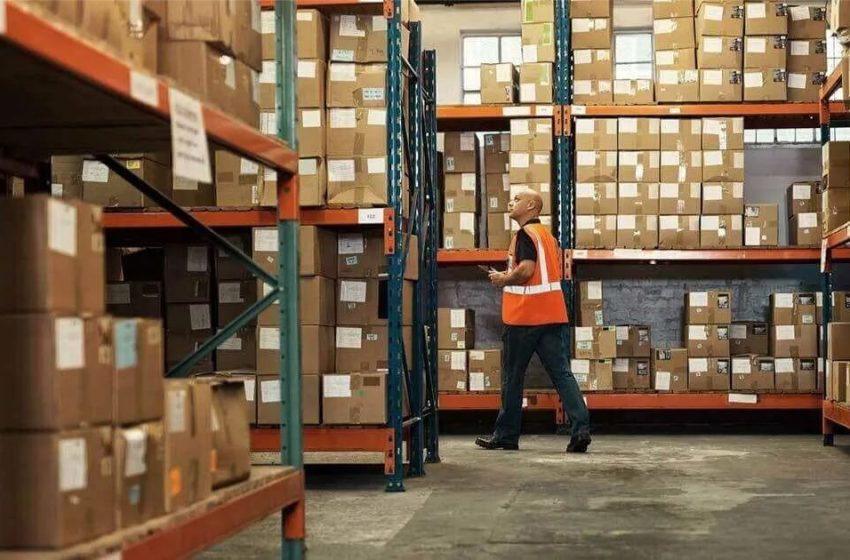Understanding Wholesale Distributors: A Comprehensive Guide

Wholesale distributors are vital intermediaries in the supply chain, bridging the gap between manufacturers and retailers. By purchasing goods in bulk directly from producers, Distributor allow businesses to stock their shelves efficiently and cost-effectively. This article delves into the nuances of wholesale distribution, its benefits, and how businesses can collaborate effectively with these entities to optimize operations.
What is a Wholesale Distributor?
A wholesale distributor buys products in large quantities from manufacturers and resells them in smaller quantities to retailers, resellers, or other businesses. They operate as a middleman, ensuring that goods are transported, stored, and delivered to various market channels.
Wholesale distributors cover numerous industries, from food and beverage to electronics, clothing, and industrial equipment.
How Wholesale Distributors Operate
-
Procurement
Distributors source goods directly from manufacturers. They negotiate contracts to secure competitive prices and maintain a steady supply. -
Storage
Products are stored in warehouses where distributors manage inventory to ensure a smooth supply chain. -
Distribution
Distributors ship products to retailers or resellers based on orders. Their logistics networks ensure timely delivery. -
Value Addition
Some distributors offer services like product customization, packaging, or marketing support to enhance product appeal for retailers.
Key Benefits of Working with Wholesale Distributors
-
Cost Efficiency
Purchasing products in bulk through distributors is often cheaper than buying directly from manufacturers, especially for small and medium-sized businesses (SMBs). -
Access to a Wide Range of Products
Wholesale distributors often deal with multiple manufacturers, offering a broad selection of products in one place. -
Streamlined Supply Chain
Distributors manage storage, logistics, and inventory, reducing operational complexity for businesses. -
Scalability
Businesses can adjust their orders based on demand, making it easier to scale up or down without overstocking.
Types of Wholesale Distributors
-
General Wholesale Distributors
These distributors handle a wide range of products across industries, such as food, electronics, and household items. -
Specialized Distributors
Specialized distributors focus on a particular niche, like medical equipment, fashion, or automotive parts. -
Regional Distributors
These distributors cater to a specific geographic area, ensuring faster delivery and localized service. -
Online Wholesale Distributors
Platforms like Alibaba, Faire, and Global Sources operate digitally, allowing businesses to purchase wholesale goods online.
How to Choose the Right Wholesale Distributor
-
Evaluate Product Range
Ensure the distributor offers the specific products your business needs. -
Check Reputation and Credibility
Research reviews, ratings, and client testimonials to assess the distributor’s reliability. -
Assess Pricing and Terms
Compare pricing structures, bulk discounts, and payment terms to determine the best fit. -
Inspect Logistics Capabilities
Verify the distributor’s ability to deliver goods on time and manage inventory efficiently. -
Look for Value-Added Services
Some Wholesale Distributors offer extra services like marketing support, technical training, or flexible return policies.
Challenges in Wholesale Distribution
-
Inventory Management
Mismanagement can lead to overstocking or shortages, disrupting the supply chain. -
Market Fluctuations
Changes in market demand or manufacturing delays can affect the availability and pricing of goods. -
Logistics Issues
Delayed shipments or transportation mishaps can disrupt business operations. -
Global Supply Chain Dependence
Many Gt Distributors rely on international manufacturers, making them vulnerable to global trade disruptions.
The Role of Technology in Wholesale Distribution
Technology has revolutionized wholesale distribution, enhancing efficiency and connectivity.
-
Inventory Management Systems (IMS)
Modern IMS solutions help distributors track inventory in real-time, preventing stockouts or overstocking. -
Customer Relationship Management (CRM)
CRM systems streamline communication between distributors and clients, improving service delivery. -
E-commerce Integration
Online platforms allow businesses to place orders seamlessly, access real-time pricing, and track deliveries. -
Artificial Intelligence (AI)
AI tools forecast demand trends, optimize pricing strategies, and predict supply chain disruptions.
Tips for Businesses Collaborating with Wholesale Distributors
-
Build Strong Relationships
Maintain open communication to ensure smooth transactions and negotiate better deals. -
Negotiate Terms
Discuss payment terms, minimum order quantities, and delivery schedules to align with your business needs. -
Monitor Performance
Regularly evaluate the distributor’s performance in terms of delivery time, product quality, and customer service. -
Plan for Scalability
Ensure the distributor can support your business as it grows, especially if you expand into new markets. -
Diversify Suppliers
Avoid over-reliance on a single distributor to mitigate risks related to supply chain disruptions.
Examples of Successful Wholesale Distribution Models
-
Costco
Costco operates as a membership-based wholesaler, offering bulk goods at discounted prices to its members. -
Sysco
As a foodservice distributor, Sysco supplies restaurants, healthcare facilities, and hospitality businesses with essential food products. -
Amazon Business
Amazon’s wholesale arm provides B2B solutions, enabling businesses to buy in bulk with competitive pricing and tailored delivery options.
Wholesale Distribution Trends in 2024
-
Sustainability Initiatives
Distributors are adopting eco-friendly practices, such as reducing packaging waste and sourcing sustainable products. -
Omnichannel Distribution
Combining physical and digital channels ensures better customer reach and service efficiency. -
Focus on Automation
Automated warehousing and delivery systems enhance operational efficiency and reduce human error. -
Global Market Expansion
With advances in logistics, distributors are tapping into emerging markets to diversify their customer base.
Conclusion
Scp Distributors llc play a pivotal role in the global economy, ensuring that products reach businesses efficiently and affordably. By understanding their operations, benefits, and challenges, businesses can make informed decisions and build productive partnerships. As technology continues to reshape the industry, wholesale distribution is set to become even more integral to the modern supply chain.




